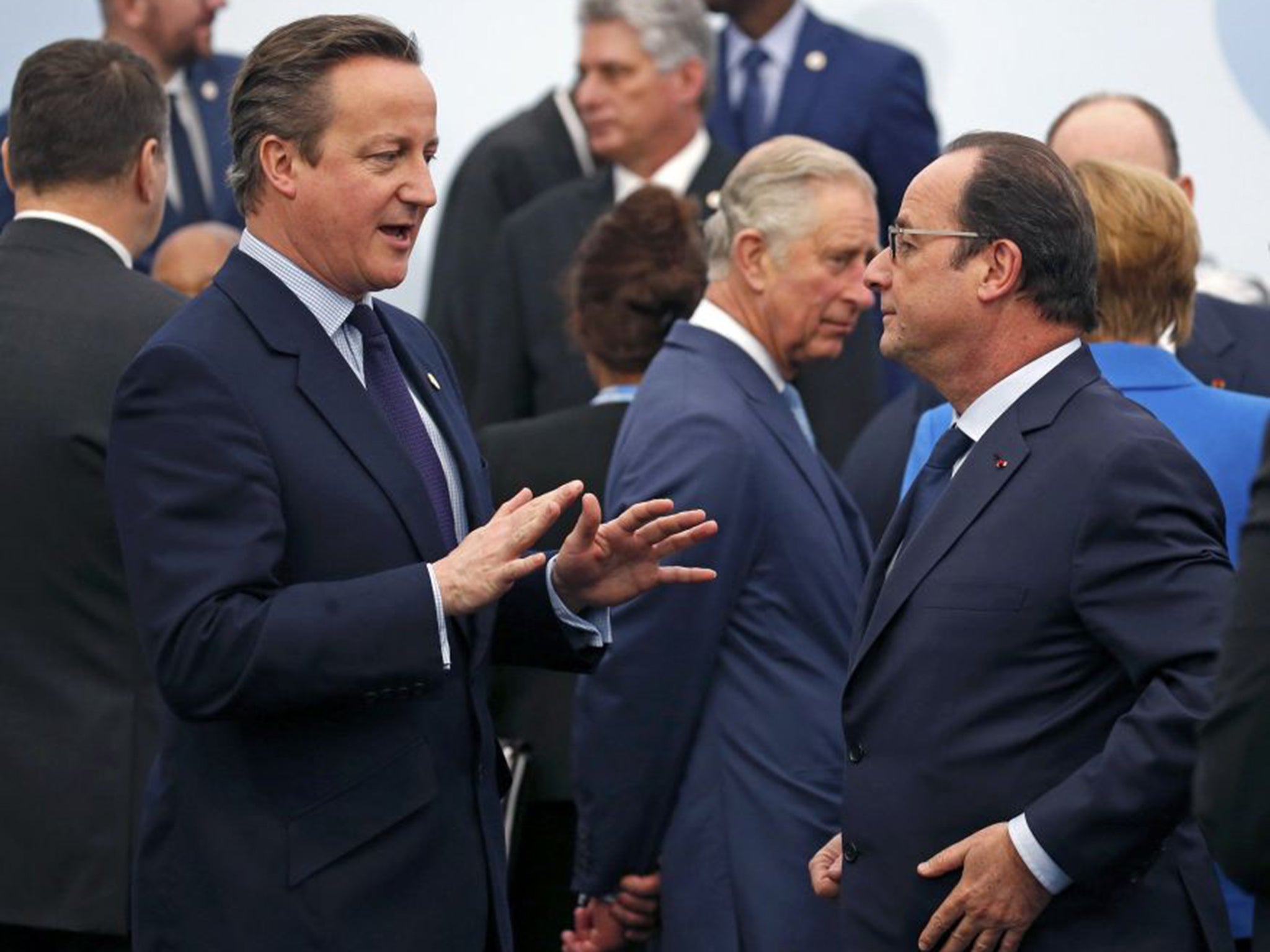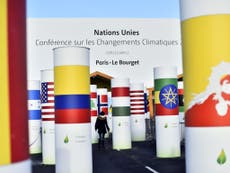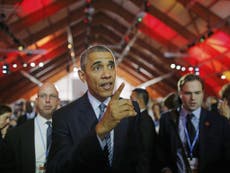COP21: David Cameron’s leadership role at Paris summit could be questioned by his mixed record at home
His approach might raise suspicions that once again a developed nation is taking a 'do as I say, not as I do' approach

There will be plenty of cynics who doubt that the international conference on climate change under way in Paris can achieve any sort of substantial deal on reducing carbon emissions. There will be plenty of hot air, of course, but that’s the last thing we need. The degree of scepticism is hardly surprising, given the world’s record on confronting the realities of climate change. While many governments are now approaching the issue with due seriousness, it remains to be seen whether collective action now will be too little, too late.
Moreover, it is clear from comments made in the run-up to the summit – most notably those made by the Indian Prime Minister, Narendra Modi – that there is still a gulf between the developed world and those nations which are still behind the curve in industrialisation and economic advancement.
Mr Modi speaks of “justice” when he says that developing nations should be allowed to burn fossil fuels to enable growth, noting that countries such as Britain and America grew rich by exploiting coal or oil. He talks, too, of the need for the advanced world to take greater responsibility for investment in renewable energies.
To an extent, of course, this is politicking. Mr Modi knows that he will be under pressure to fall in with some kind of deal and he wants to make clear that this will be tough for him. The fairness motif, which plays on historical truths to appeal to national pride (or national shame insofar as developed countries are concerned) is a tired argument. It ignores not only the basic notion of two wrongs not making a right, but also underplays the fact that India – and other growing economies – will be as badly hit by rising temperatures as anywhere else.
However, Mr Modi’s second argument – that the advanced world should take on extra responsibility for developing and installing renewable energy systems – has more substance. It is a more forward-looking contention for a start.
David Cameron evidently recognises its merits, having pledged 0.7 per cent of Britain’s GDP to help what he describes as the “most vulnerable” nations. Half will be spent on mitigation against the effects of climate change – flood defences for instance – while the rest will go towards so-called “adaption schemes”, including solar energy.
These commitments are laudable. Yet the Prime Minister’s record at home is mixed, which might raise suspicions that once again a developed nation is taking a “do as I say, not as I do” approach. UK greenhouse emissions have fallen consistently since the early 1990s but the past six months have suggested a Conservative-only Government is less interested in green issues than the previous Coalition. Subsidies for solar and wind power have been slashed and there is less support for householders wishing to take energy-efficiency measures. Al Gore, the former US Vice-President, said in September he was “puzzled” by the approach. Britain, he suggested, seemed willing blithely to lose its position as world leader on the climate change issue. If that is so, it shows a remarkable failure of foresight by this administration. Perhaps this is why Mr Cameron is so keen to push for legally-binding agreements in Paris: sounding tough may help him regain a leadership role.
However, nobody has yet worked out an effective way of enforcing such agreements and the proposals will alienate some. Mr Cameron may be on stronger ground when it comes to pushing for greater involvement in the green agenda by the private sector. As he notes: “The issue of climate change is too large for governments alone to deal with.” And that, perhaps, is the greatest indictment of all.





Join our commenting forum
Join thought-provoking conversations, follow other Independent readers and see their replies